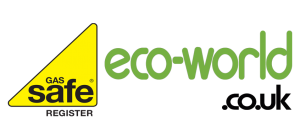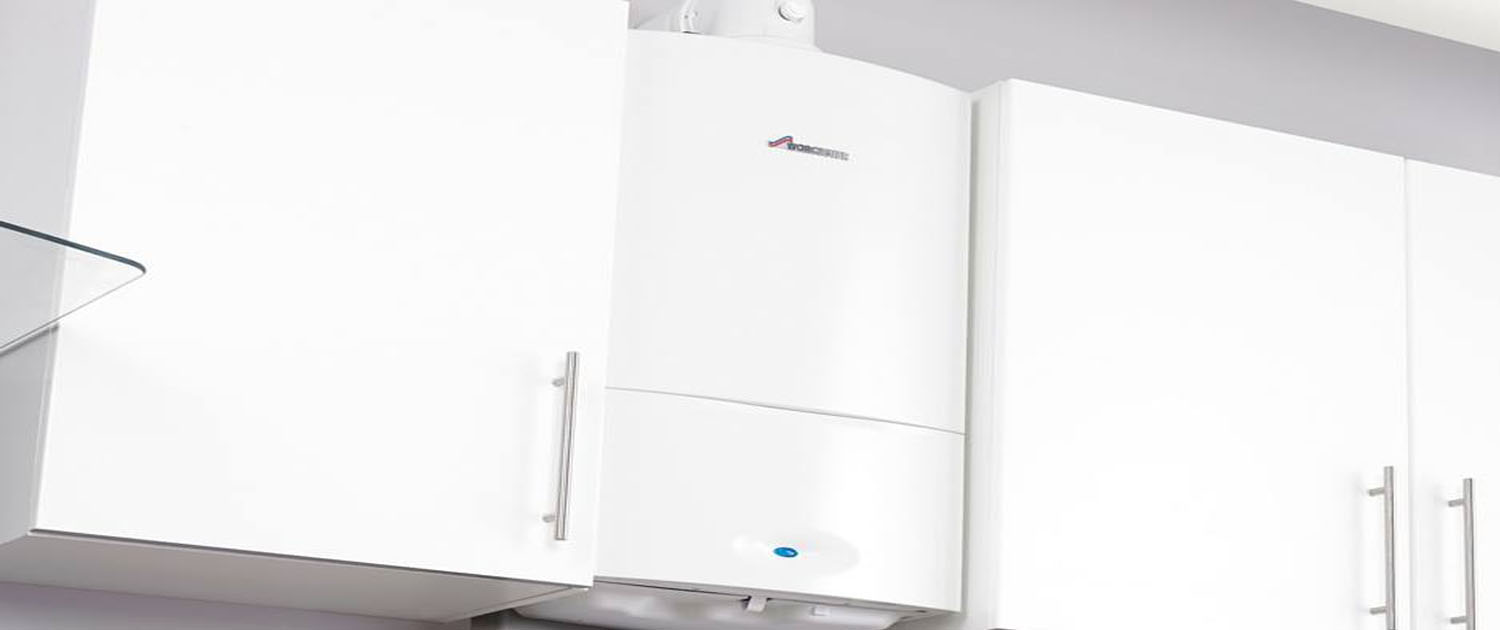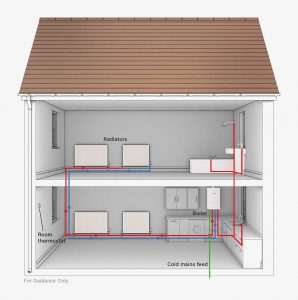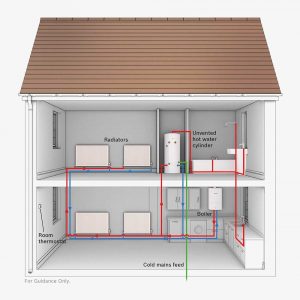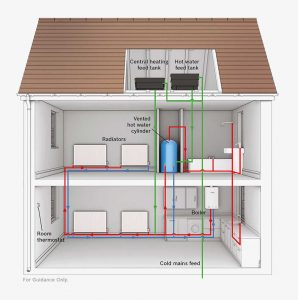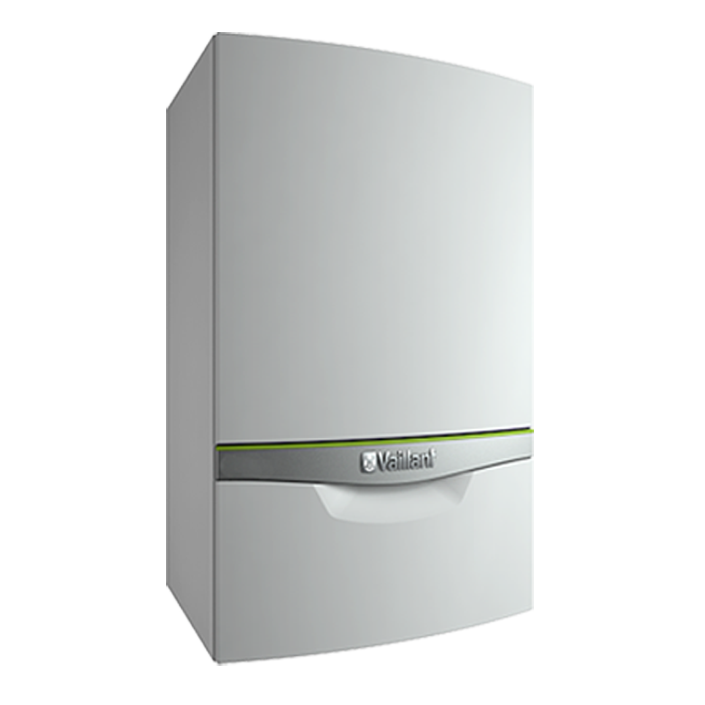Getting a new boiler and central heating system
Our team has gathered a lot of information to help you understand what boilers are available and the different benefits they offer.
NEW BOILER AND CENTRAL HEATING SYSTEM EXPLAINED
If you’re thinking about getting a new boiler and central heating system, it’s important to know the different types and how they work.
The size, type and make of boiler can all affect how much energy you use and how your home and hot water is heated.
Our heating engineers have expertise in following three types of boiler installation:
- Combi
- Conventional
- System
TYPES OF BOILERS EXPLAINED
COMBI BOILERS
A combination or ‘combi’ boiler is both a high efficiency water heater and a central heating boiler in a single compact unit. Combi boilers heat water directly from the mains when you turn on a tap, so you won’t need a hot water storage cylinder or a cold water storage tank in the roof space.
They are also very cost-effective and energy-efficient as water is heated instantly rather than being heated and then stored in a cylinder. An added benefit is that hot water is delivered at mains pressure, which means that you could get a powerful shower without the need for a separate pump.
- Compact sizes make combi boilers perfect for smaller properties
- Ideal where there is little or no loft space
- No need for a hot water cylinder allows increased living space
- No cold water storage tank frees up a loft for conversion
- No risk of loft pipework freezing
- Less pipework in the home makes installation typically cheaper
SYSTEM BOILERS
System boilers require a cylinder for storing hot water, however the major heating and hot water system components are built into the boiler itself, making it quicker and easier to install. In addition, there is no need for a tank in the loft, so it can be an option in a home with little or no loft space or where the space is earmarked for a conversion.
These boilers are also compatible with solar water heating systems, which deliver environmental benefits as well as lower energy bills.
- Ideal for homes with more than one bathroom
- Constant supply of hot water to any number of taps at the same time
- No need for a loft tank, freeing up space and eliminating worries about leaks or frost damage
- Economical to run
- Built-in components makes installation quicker and neater
REGULAR BOILERS
Regular boilers (sometimes known as traditional, conventional or heat only boilers) are ideally suited to homes that already have a traditional heating and hot water system which is linked to a separate hot water cylinder. These boilers also need a cold water storage tank in the loft to feed the hot water cylinder as well as a tank that maintains the water level of the central heating system.
A regular boiler may be the best option for replacing an existing boiler if the property has an older radiator system, as it might not be able to cope with the higher water pressure that is delivered by system or combi boilers.
- Perfect for homes where a lot of hot water is used at the same time
- Ideal where there are two or more bathrooms
- A good option in areas where water pressure is low
- Compatible with solar water heating systems for a lower carbon footprint and lower energy costs
Our Boiler and heating range
We’ve been installing new boilers for more than 20 years, and have got plenty of experience to deal with various types of installations.
We work very closely with the top manufacturers to install boilers to suit every type of home. This includes Alpha, Worcester Bosch, Vaillant, Baxi, and any other boiler make of your choice. Our new boiler package includes:
- Brand New A Rated Energy Efficient Boiler
- Free Central Heating Controls
- Free Room Thermostat
- Free Central Heating Magnetic Filter
- Free Cleansing of central heating system using chemicals
Boiler and Central Heating Terms you should know!
Condensing Technology
Changes to government legislation and technology advances in boiler design has driven boiler designs to condense to ensure as much heat as possible is converted into useful heat for your home. By condensing, your boiler will ensure at least 90p in every £1 you spend on gas or oil will be converted into heat for your home comfort.
Condensate
Along with heat, when gas or oil is burned within your boiler condensation is also created. This can be seen in the gases which plume out from the boiler, something that is especially noticeable in cold weather. However in addition to this condensate being discharged in the air, condensate also collects inside the boiler and is drained away either inside or outside your home. This is safe and nothing to worry about.
Programmers and Programmable Room Stats
Programmers are the third key component to a well controlled, efficient heating system. With a thermostat to control the maximum room temperature and TRVs to turn down little used rooms, the final measure is to programme the heating to come on and off for when you are at home. 7-day programmers have the added refinement of being able to programme each day of the week differently. If you already have a thermostat a programmer can be fitted along side it. This will cost around £150. If you do not already have a thermostat you can fit a combined unit which will cost around £220.
TRV
Thermostatic Radiator Valves (TRV’s) enable you to control the individual temperature of each room in your home, and can be adjusted to the comfort levels you want. The higher the number selected on the TRV, the hotter the radiator and warmer the room.
Flue
The flue is the part of the boiler which allows exhaust gases to exit the boiler. The flue is typically situated directly behind the boiler enabling waste gases to exit safely straight out of the external wall of your home.
Flow Rate
Quoted for Combi boilers, a flow rate represents how many litres of hot water comes out of the tap in a minute. Your flow rate is determined by the amount (and pressure) of water that is entering your property from the water main and the ability of the boiler to heat that water to the temperature you have set. The more powerful a boiler is (represented in kW), the faster the boiler will be able to heat the water coming into your home.
However it is important to recognise a high kW output will not always increase your flow rate. If you have 10 litres per minute coming into your property, you will only be able to receive 10 litres per min of hot water. For example having a boiler that has a maximum flow rate of 14 litres per min will not increase the amount of hot water you receive, if you only have 10 litres per min coming into your boiler.
System Filter
A system filter is a specifically designed unit which aims to remove and filter magnetic and non-magnetic contaminants from your central heating system before they reach your boiler. Building Regulations always recommends a system filter be fitted to your heating system pipes prior your boiler to prevent any damage to key components.
System Flushing
Over time oxygen in the heating system can react with the metals and components of a heating system such as radiators to produce magnetite (rust) particles, which becomes suspended in your system water. This process and the build-up of other chemicals (such as lime scale) can quickly cause blockages and damage key components within the boiler and system. To prevent this a process of thorough system flushing should take place when fitting a new boiler onto an old heating system. This process involves forcing old system water out of the heating system, whilst simultaneously filtering the system until all of the old water and contaminants are removed. Finally inhibitor and a system filter is added to prevent any future sludge and contaminants from building up.
